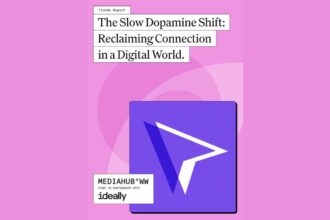The legendary former UK Prime Minister told us to write in simple languages. That’s empathy. That’s being mindful of others. Now, never let anyone with some corporational fancy titles tell you to do otherwise. Ever.
An unpopular guideline from an unpopular writer.
Worry not, you will get some great values that matter to you. Guaranteed.
Often, the statements of using ‘empathy’ in a company’s products, services, or cultures lead to more questions than answers.
- How do we start with applying empathy in communications?
- How is empathy different from ‘sympathy’?
- Do we really have the special ability for understanding others?
The buzzword seems elusive to many.
‘Empathy’ comes from the German Einfühlung which literally means ‘feeling into’. The Cambridge dictionary describes ’empathy’ as the ability to share someone else’s feelings or experiences by imagining what it would be like to be in that person’s situation.
In writing, empathy is the key to understanding readers. When you empathize with someone, you see what they see and feel what they feel.
“I’m sorry for the problem you’re having. I can understand why you’re frustrated. I would be too if it happened to me.”
In the above sentence, you:
- apologize for the problem
- acknowledge your genuine concern (that’s sympathy)
- show empathy with the last statement
It’s hard to build empathy. It takes deep self-awareness and great mental effort to walk in someone else’s shoes.
But, humans are cognitive misers—who love quick fixes rather than slow, careful ones—driven by emotion, and intuition. We’re only human after all.
Fortunately, that’s also the key, to being more humane. Talk, write, and feel like humans. Then, you’ll find ways how to better empathize with others.
There’s no formula to be good at writing with empathy. But, there are principles—and that’s what this guideline is all about.
Here are three essentials you need to master when trying to use empathy in your articles, newsletters, speeches, and other written products.
1. The Words
Use plain language. Avoid fancy words like ‘optimize,’ ‘strategize,’ or ‘cadence.’ Yuck!
Don’t give people headaches. Stop wasting their time. Don’t add problems to their life.
Instead: be clear, touch their senses, and ease their life’s problems. Be the solution.
We always choose the simplest words possible at ANOA. Be it a B2C or B2B company, we believe everyone’s in the H2H (Human to Human) business in communicating.
Winston Churchill said, use simple words everyone knows, then everyone will understand.
The legendary former UK Prime Minister told us to communicate simply and clearly, so readers can easily understand. That’s empathy. That’s being mindful of others.
Now, never let anyone with some corporational fancy titles tell you to do otherwise. Ever.
Remember: simple doesn’t equal easy. It’s the opposite of easy.
2. The Lengths
“Never use a long word where a short one will do,” says Orwell’s Six Rules for writing.
Write longer only if it will make things simpler, clearer, and easier for readers to digest.
You may need to write longer to better explain jargon like Kaizen, DesignOps, SaaS, NFT, IoT Experience, Data-Driven, or Design Thinking in your content.
Mind you, not everyone understands or even bothers about those buzzwords.
Always think like an average Joe and Jane who love simplicity, easiness, practicality, and usefulness of information.
3. The Tones
Write as if readers are sitting in front of you. Feel their presence. Write as if you talk to one person, yes only one, face to face.
You’re not the customers. Meaning you must listen to their concerns carefully—word by word, break them into points to address their concerns more accurately.
Never hide behind passive and rambling language. Use active, clear, and direct words in writing whenever possible in whatever industry you are in.
That should be the universal tone of voice.
“What the FCK?”
In 2018, a massive supply chain issue forced KFC to temporarily close hundreds of stores in the UK. KFC lost about £1 million of revenue per day.
The chicken crisis became front-page national and global news in seconds.
To take control of the situation, KFC used news brands to say “we’re sorry” in a simple, clear, and fascinating way.
KFC made a bold, empathetic apology directly to their customers, along with cheeky humor.
Praises poured in KFC for facing up to the issue, with 733 articles dedicated to KFC ‘FCK’. The brand enjoyed a significant increase in its trustworthiness measure following the campaign.
The table had been turned.
History recorded this event and showed the power of simplicity, clarity, humor, and empathy in winning your readers’ attention.
The question: why on bloody earth do people keep proudly writing in complex ways, using lots of jargon, and trying so hard to sound or look clever rather than being clear?
The right insights
To write you need insights, apart from inspiration and, of course, willingness.
Analytics, demographics, and stats might be on your head while questioning how meaningful those awkward percentages are for your writing when first reading the word ‘insight’.
I feel you. We’ve all been there. We need to use the right insights.
Don’t get me wrong. I love science, madly.
But, it’s also worthwhile to use observations and intuitions to take writings to a whole nother level.
We’re talking about communicating with complex human beings, not some kind of programmatic robot. More often than not, sharp observations come in handy.
Most decisions in life aren’t always made scientifically. They are rather emotional, like marriages, anti-vax movements, and religious or political extremisms. Not everything is quantifiable.
The right insight should always be about the people, not the products or features. It’s about paying more attention to human psychology over technology. Want proof?
When Apple launched its original iPod in 2001, it communicated the human benefits instead of the device’s features.
It could’ve celebrated iPod’s 5GB memory, Firewire connectivity, and 1.8-inch drive. But, what the hell did that mean to most non-tech people?
Instead, Apple ran with: “1,000 songs in your pocket.”
Over 400 million iPod sales later, I think it’s fair to say the world listened.
We must study how and why people behave, think, feel, or see things in certain ways to be better writers.
To build empathy, you need to slow down. Don’t hustle. Instead, take time to study.
There’s no silver bullet. Practice. Great things take time.




















